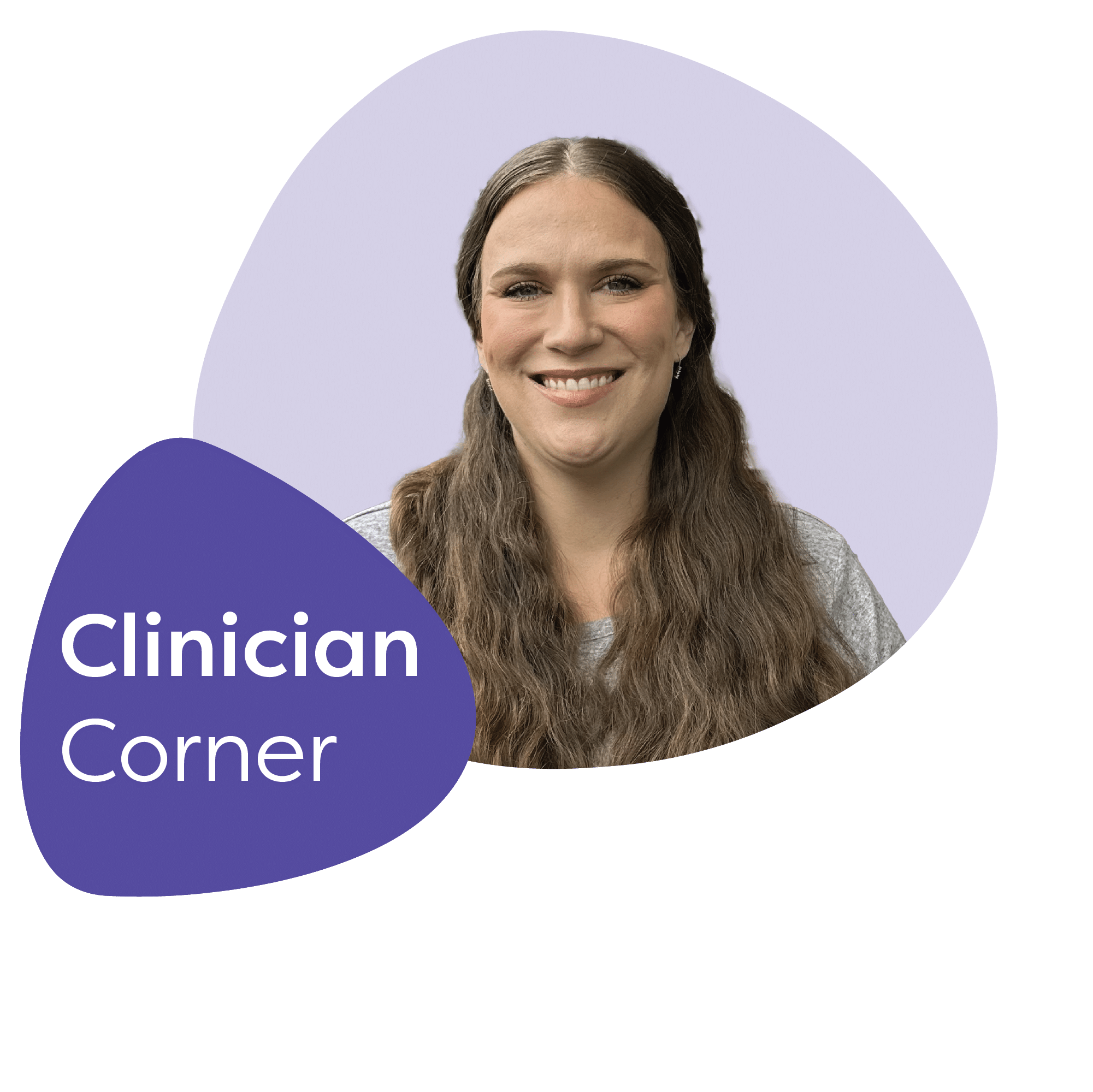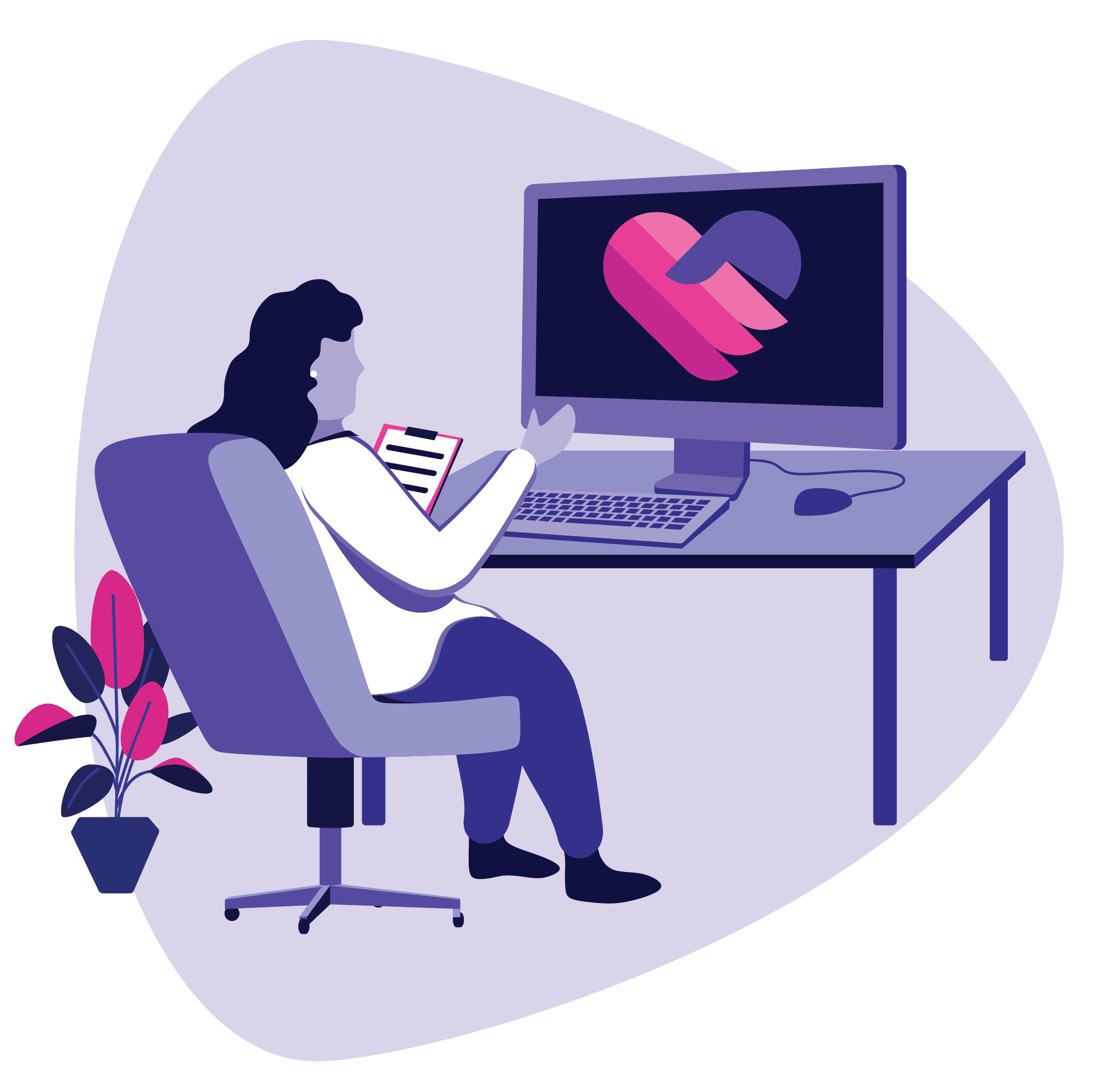Iris clinicians are at the heart of what makes our organization such a special place to work. That’s why we’re turning the spotlight on the amazing work they’re doing every day. This month, we’re sitting down to talk with Sarah Mendenhall, PMHNP.
Q. How did you find Iris and decide you wanted to be an Iris provider?
A. I was doing telehealth for another company and wasn’t happy, so I started looking for other opportunities. I liked that Iris had more traditional full-time positions with comprehensive benefits versus many other places I had applied to at the time that had more contract-based positions. I was looking for something else more long-term and settled.
Q. How does telehealth compare to in-person care?
A. It’s pretty comparable in my opinion. It’s very convenient, especially with the onset of COVID, it’s been easier to reach people in their homes with some of the lax in regulations. We’ve been able to do a lot more phone calls for some visits or Zoom meetings from people’s homes, which has been convenient because I tend to work in very rural communities in various parts of the country, and getting them to come to the office sometimes can be very difficult.
I like that you can reach patients where they are to help improve their ability to engage in treatment. That’s a wonderful thing.
I do miss being in the office and being around colleagues a little bit more and those types of day-to-day benefits. However, because of technology, I’m able to stay connected with my coworkers in a very fulfilling way as well as just bridging the gap with patients. Video conferencing is still useful, and it doesn’t feel too impersonal like I feared it would before I transitioned to all telehealth.
Q. How do you foster connection with patients virtually?
A. It helps to start, especially when you first meet with the patient, by telling them where you are to try to help them understand that you aren’t just another person. I also like to reassure them sometimes that I’m a provider that’s been with the clinic where they’re seeing me for an extended period of time. I’m not planning on transitioning anywhere because sometimes, that can be difficult when engaging in mental health treatment, especially if there’s been high turnover. I know that’s been a concern for some patients with virtual versus in-person providers.
Fostering connection is similar to how I have always done. You try to learn about people and who they are on a day-to-day basis and see if there are just ways to connect with them, and that’s just the best way I can find to connect with people.
Q. As a healthcare professional, how do you manage work-life balance?
A. I’m not always the best. I probably read emails more on my days off than I should, but luckily I don’t get too many. I have my dedicated workspace, which helps a lot, especially if you’re working within your home. That’s an incredibly important piece to help maintain your mental health because it can be difficult not to leave your home very much, especially when you’re first getting used to it. Then, when I’m finished with work, I spend time with my family. I have two very small children, a two-year-old and a seven-month-old, so they tend to keep me very grounded because it’s hard to focus on other things when I’m not in my office doing work.
Q. What is the most rewarding part of your job?
A. It is probably when clients tell me they feel heard and listened to. That’s always an experience I hope my patients have with me. And when I have a patient that expresses those feelings towards our provider-client relationship, it makes me feel like I am doing a good job because it can be hard to always feel that way in anything, but especially in this field, it can be really easy to feel like you aren’t doing a good job and you could be helping more and all those types of things. That’s the most fulfilling thing when patients express those thoughts and feelings to me. And just seeing people improve, get through something challenging, and feel better afterward.
Q. What do you love about working with Iris?
A. It gives me the freedom to have a really good work-life balance. Iris cares about their providers and really works to bridge the gap between you and your placement. So if you’re having an issue, maybe with your placement, something that you wish was going a little bit better, or anything that could come up, you have someone that has your back, and that is going try to negotiate with you and for you, and that can help ease a lot of stress.
Q. Why do you think telepsychiatry is important to the future of mental healthcare?
A. The access. When people struggle with their mental health, it’s very hard to engage, and it can be very difficult or exhausting to get up and leave your house sometimes. Or you could be having an issue at the hospital or while you’re incarcerated, and we can reach people in many different ways and expand our collaboration with multiple areas.
Q. What advice would you give someone new to telehealth?
A. Look at your camera, not your patient, because that helps facilitate eye contact. Still, look at your patient, of course, but if you want to inspire the eye contact feeling, then look at your camera lens. That’s the biggest thing. I think that’s the biggest piece of advice because otherwise, it’s similar to being in person.
At Iris, we believe our providers should be respected, valued, and applauded for the work they do, and we couldn’t be more proud to say, “thank you” to our very own Sarah Mendenhall. If you’d like to learn more about working for Iris Telehealth, contact us today.


